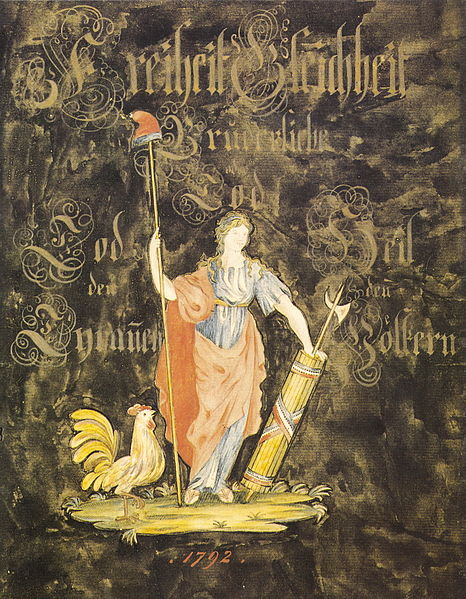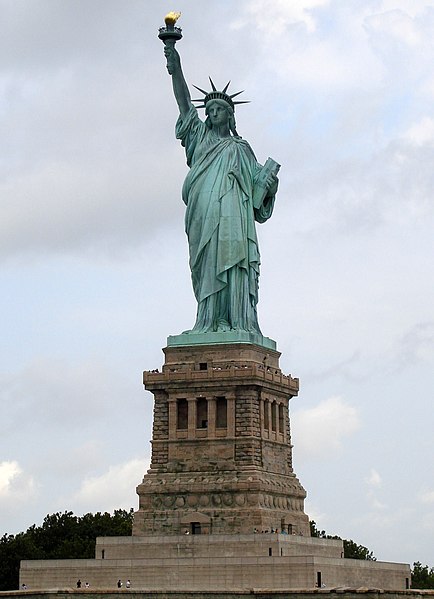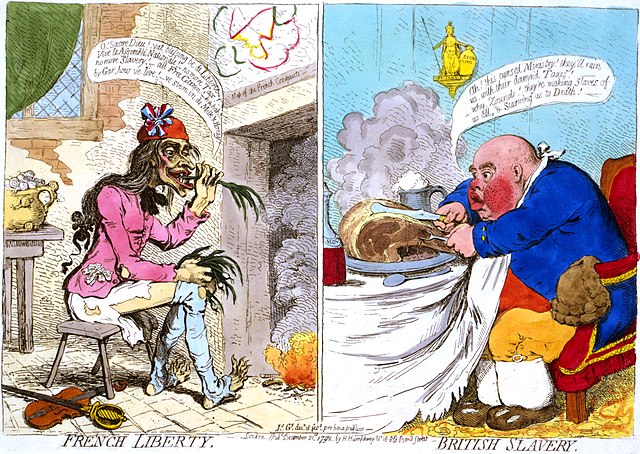Liberté, égalité, fraternité
Liberté, égalité, fraternité, French for 'liberty, equality, fraternity', is the national motto of France and the Republic of Haiti, and is an example of a tripartite motto. Although it finds its origins in the French Revolution, it was then only one motto among others and was not institutionalized until the Third Republic at the end of the 19th century. Debates concerning the compatibility and order of the three terms began at the same time as the Revolution. It is also the motto of the Grand Orient and the Grande Loge de France.
A propaganda poster from 1793 representing the French First Republic with the slogan "Unity and Indivisibility of the Republic. Liberty, Equality, Fraternity or Death", together with symbols such as tricolour flags, phrygian cap and gallic rooster
Text displayed on a placard announcing the sale of expropriated property (1793). Soon after the Revolution, the motto was often written as "Liberty, Equality, Fraternity, or Death." "Death" was later dropped for being too strongly associated with the excesses of the revolution.
Alsatian sign, 1792: Freiheit Gleichheit Brüderlichk. od. Tod (Liberty Equality Fraternity or Death) Tod den Tyranen (Death to Tyrants) Heil den Völkern (Long live the Peoples)
5-franc piece, 1849
Liberty is the state of being free within society from oppressive restrictions imposed by authority on one's way of life, behavior, or political views. The concept of liberty can have different meanings depending on context. In the Constitutional law of the United States, Ordered liberty means creating a balanced society where individuals have the freedom to act without unnecessary interference and access to opportunities and resources to pursue their goals, all within a fair legal system. In Christian theology, liberty is freedom from the effects of "sin, spiritual servitude, [or] worldly ties".
Liberty Enlightening the World (known as the Statue of Liberty), by sculptor Frédéric Auguste Bartholdi, was donated to the US by France in 1886 as an artistic personification of liberty.
John Stuart Mill
Bust of Aristotle
In French Liberty. British Slavery (1792), James Gillray caricatured French "liberty" as the opportunity to starve and British "slavery" as bloated complaints about taxation.








